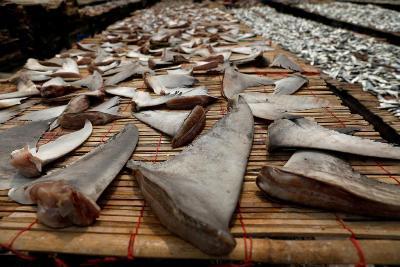4-day global expert meeting on trade of sharks and rays gets underway at CMFRI
KOCHI, 24 July 2019: A four-day global expert meeting on shark trade got underway at the Central Marine Fisheries Research Institute (CMFRI) on Wednesday with a call to address deep knowledge gaps and support managers in management of existing shark and ray fishery across the globe.
[removed][removed][removed] (adsbygoogle = window.adsbygoogle || []).push({}); [removed]Experts recognised some progress but also many difficulties in assessing shark trade and maintenance of sustainability of this marine resource owing to shortage of proper data.
The meet stressed the need for mapping and understanding of the full value chain of these species to secure sustainability of commercial fishery and markets, which would benefit both the stakeholders and the resources.
[removed][removed][removed] (adsbygoogle = window.adsbygoogle || []).push({}); [removed]The event is jointly organised by the Food and Agriculture Organisation (FAO) of the United Nations and the CMFRI as part of a collaborative research project of the two entities. Experts attending the discussions felt the need for well-informed guidelines for collecting and reporting information on use, markets and market chain for shark and ray commodities globally.
Collecting information on various fishery related activities
Leading the discussion, Dr Kim Friedman, Senior Fishery Resources Officer of the FAO said that even though many countries are trying hard to collect information on various fishery related activities, there is still severe shortage of data on the full value chain, that included consumption, local and retail sale including exports of these resources.
[removed][removed][removed] (adsbygoogle = window.adsbygoogle || []).push({}); [removed]“This knowledge gap makes difficult to take decisions to inform the stakeholders well on what is happening the sector”, he said.
Dr. Kim also said that the meeting would benefit from the attendance of global experts in this field to formulate a document of guidelines that all countries could use to improve data collection and mapping of value chains to promote sustainable fishing and trade on this vulnerable marine resource group.
[removed][removed][removed] (adsbygoogle = window.adsbygoogle || []).push({}); [removed]Referring to the research achievements of the CMFRI in the conservation and sustainable utilisation of these species, Dr A Gopalakrishnan, Director of CMFRI said the institute has already developed guidance for the National Plan of Action (NPOA) on Sharks, Non-Detriment Findings (NDF) document on CIITES listed elasmobranchs and developed DNA barcodes of more than 100 elasmobranchs (sharks, rays and guitar fish) species.
He also said that minimal target fishing of these resources as they are often taken as bycatch, makes monitoring and management of the shark and ray species more difficult.
Dr Shoba Joe Kizhakudan, Principal Scientist and the leading researcher from CMFRI in the collaborative research work with FAO said that mapping of value chain of shark trade is very much important in India where sharks are landed whole and every part of the shark is utilised in one form or the other.
CMFRI studying on mapping of value chain
“CMFRI’s studies on mapping of value chain is in progress. However, the guidance document envisaged as an output of this meeting will definitely be an asset in carrying out such studies”, she said.
[removed][removed][removed] (adsbygoogle = window.adsbygoogle || []).push({}); [removed]CMFRI has found several gaps in information on shark trade which can primarily be attributed to the difficulty in obtaining access to the stakeholder groups, particularly in the northern states of the country, she added.
“Several market chains exist in India for shark products, with dried meat being sent from the south west coast to as far as the north eastern hill states, but this needs to be documented with valid data. For this, it is necessary to develop trust and transparency between researchers and stakeholders”, Dr Shoba added.
[removed][removed][removed] (adsbygoogle = window.adsbygoogle || []).push({}); [removed]Dr PU Zacharia, Head of the Demersal Fishery division of CMFRI and Mr Matt Walsh, Senior Consultant of the FAO among others spoke on the occasion.
Apart from scientists from India, representatives from FAO and experts from various countries such as UK, Australia, Mexico, Brazil, Argentina, USA, Philippines, Indonesia, UAE, Malaysia, Peru, Italy, Sri Lanka, Nigeria, Somalia, Myanmar and Namibia are attending the meet.
[removed][removed][removed] (adsbygoogle = window.adsbygoogle || []).push({}); [removed]Photo caption: Dr Kim Friedman, Senior Fishery Resources Officer of the FAO speaking at the four-day global expert meeting on shark trade that began at CMFRI on Wednesday.
Image credit: todayonline.com




















